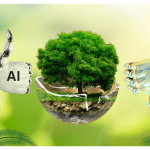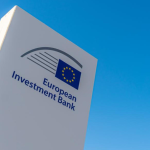Executive Summary
This analysis highlights Kenya and Africa’s accelerating but complex shift toward clean energy, sustainable AI, carbon credits, and climate resilience. From local reforestation in Kwale to regional carbon market reforms and AI-powered climate tech, momentum is building around ESG-driven action. Strategic risks remain around infrastructure, policy gaps, and equitable investment. Yet the emergence of digital MRV systems, early warning investments, and grassroots carbon projects signal a region ready for responsible innovation and sustainable finance.
Introduction & Background
With mounting global concern over climate change, African countries are positioning themselves as climate action leaders despite contributing minimally to global emissions. Kenya, in particular, is doubling down on its renewable energy dominance, carbon trading initiatives, and green-tech innovation. This report synthesizes recent developments across news outlets, mapping the ESG landscape across energy access, carbon markets, AI, and community resilience.
Data and Analysis
Carbon Credits - Farmers in Kwale County are reviving forests through World Vision’s Restore Africa program. Carbon credits will be assessed every 5 years with expected earnings over 30 years. Tera (Kisumu) became the first African firm to issue credits via the 'Riverse' registry, using biochar and a digital MRV system.
Clean Energy Access - AfDB’s Africa Carbon Support Facility will enhance trading infrastructure and help African countries participate in compliance markets. A new Power Shift Africa report envisions a 100% renewable Africa by 2050.
AI & Climate - AI’s environmental cost is under scrutiny due to water and energy use in data centers. Kenya’s National AI Strategy (2025–2030) focuses on climate-smart uses: flood monitoring, precision agriculture, and disaster response.
Climate Risk Response - Kenya is allocating 5% of its disaster risk budget to climate early warning systems from FY2025/26. Early Warnings for All (EW4ALL) initiative includes digital forecasting tools, community alerts, and infrastructure resilience.
Key Findings
- Carbon Credit Momentum: Locally-led reforestation and biochar initiatives are maturing into revenue-generating carbon assets with global certification.
- Sustainability vs. Tech Growth: Kenya’s AI expansion is energy-intensive. Balancing innovation with clean power and ESG frameworks is now urgent.
- Energy Access Inequality: 600M+ Africans still lack electricity. Forums stress decentralization (mini-grids, clean cooking) as fastest path to energy equity.
- Policy Shifts: Kenya’s climate is warming faster than global averages. Strategic budget shifts, like early warning system funding, are critical adaptations.
- International Collaboration: Forums and partnerships (e.g., Australia-Kenya Clean Energy Forum, Mozilla-UoN AI alliance) demonstrate growing North-South green alliances.
Recommendations
- Prioritize AI Energy Accountability: Require data centers and AI developers to disclose and optimize energy/water usage using ESG benchmarks.
- Support Decentralized Clean Energy: Expand mini-grids, solar irrigation, and community biochar projects for energy access and carbon finance.
- Fast-Track Digital MRV Adoption: Promote platforms like Riverse and GIS tools to ensure transparency and boost investor trust in African carbon credits.
- Integrate Early Warnings in Planning: Embed EW4ALL systems in national and county development plans to protect lives and agricultural systems.
- Align Funding with Impact: Direct climate finance to locally-verified ESG-aligned projects that offer co-benefits—jobs, soil health, resilience.
References
- Business Daily (June 2025): “Balancing AI Growth, Climate Action in Kenya Is Key to Greener Tomorrow”
- Daily Nation: “Africa’s Clean Energy Future Is Within Reach”
- The Standard: “State Stakes 5% of Disaster Budget on Climate Alerts”
- The Star: “Kwale Farmers Revive Forests, Hope for Carbon Credits Cash”
- The Kenyan Wall Street: “Kisumu Climate Tech Startup Tera Garners Approval to Sell Carbon Credits”
- Power Shift Africa Report (2025)
- AfDB Africa Carbon Support Facility Launch Brief (2025)








